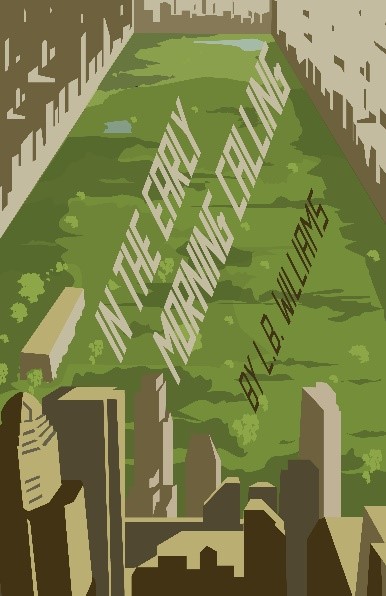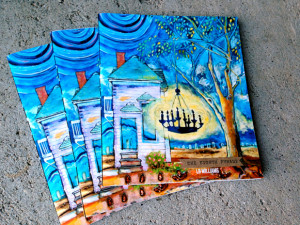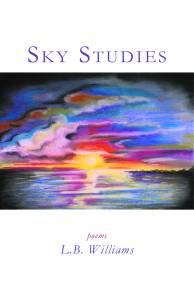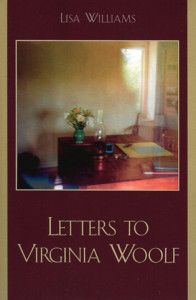My historical novel, Forget Russia, was published by Tailwinds Press on December 1, 2020!
A new poetry chapbook was published in January 2018!
In the Early Morning Calling published by Finishing Line Press
The official chapbook launch of In the Early Morning Calling was held Saturday, March 17, 2018, at Berl’s Brooklyn Poetry Shop – 141 Front Street in Brooklyn’s DUMBO
How casually we say to ourselves and others that we all know that life is short and nothing is permanent. But if we turn, for example, toward those we love, our parents, or spouse, or children, and try to hold in mind the idea that impermanence only is lasting, then we start to realize how difficult yet centrally important this thought is. Here in these beautiful poems are the lyrics of the Dharma, the songs that show us how hard it is to find and stay on the path, and how liberating and meaning-full it can be when we do.
–Fred Marchant, Author of Said Not Said (Graywolf Press, 2017)
L.B. Williams is a writer who understands the way poetry can open doors. Her work is candid, weaving together threads of the past alongside questions about the future. The moments of revelation accumulate into a lovely panorama of the human experience.
–Lisa Jarnot, author of Joie de Vivre: Selected Poems 1992-2012 (City Lights Press).
Lisa Williams shows us a world split open, a glimpse inside a rock of violet quartz. Violet, because this collection is printed with spirituality, melancholy, and the colour of mourning, watered down by tears.
On the asphalt of New-York, death casts its shadow: there, where the cement of the foundations crumbles away, in the megalopolis which does not stop swallowing itself, the internal mapping remains, memories populated with ghosts. But will streets numbers and names be enough to anchor the soul worn out by the seasons? Is not evanescence inexorable?
Guided by Buddhist wisdom, the woman follows her path, Sutras become entangled with her own chant, root and free her altogether, revealing her true identity as poet: that of a disciple of Bashô, a « wind-swept spirit ».
–Maia Brami, author of Letter to the Poet a book Homage to Jean Cocteau, (Belin publishing).
GREAT NEWS!
In the Early Morning Calling was reviewed by Amy Kronenberg for the Mom Egg Review August 30, 2018.
Check out the review.
Two poetry chapbooks published in 2014.
The Eighth Phrase is published by Porkbelly Press, and
Sky Studies is published by Finishing Line Press
Sky Studies by L.B. Williams
Lisa Williams’ universe offers startling contrasts – the City, modern world – New York – meets a living Nature inhabited by spirits which is somewhat reminiscent of the Indian one, birth prolongs death, spring prolongs winter, earth extends to sky, maternity rubs against childhood, happiness rubs against longing and cold moon, from page to page, enlightens the darkness, symbol of fertility, offering a mirror to the woman who’s empty, full or wounded, silent friend of her sleepless nights. Maïa Brami, author Letter to the poet, Cocteau in Milly-la-Forêt
Following a painful loss, a longed-for child arrives. Memories. Parents and stepparents. The old neighborhood. Birth and death. The subject matter of these works is sometimes quotidian, but the insights are not. The poems in this book illuminate the ways the past informs the present and how the present can transcend that past. Lisa Williams approaches her subject matter with unflinching honesty, a sharp eye and ear for detail, and a lyrical voice. Sky Studies is a moving, thoughtful, and inspiring collection. Marjorie Tesser, Editor, Mom Egg Review
Sky Studies has a definitely spiritual tenor to its poetry yet the language is accessible. This is not a quick read by any means but I assure you that the time invested in each page will be worth it. It is a unique collection of fine poems with the ability to make a reader ponder the world around them with the sound of a brook running softly through every thought. Ed Bennett, Quill and Parchment
Rowman and Littlefield, June 2005
Letters to Virginia Woolf is a lyrical memoir and a meditation on Woolf’s life and writings, particularly her relevance in this chaotic post 9/11 time period. The book also deeply examines contemporary women’s experience within the context of Woolf’s enduring importance. While Woolf was not a mother, Williams looks at the experience of becoming a mother later in life and the ensuing fertility issues that go along with that decision. She writes this within the context of Woolf’s statement that she succeeded in killing off The Victorian Angel in the House, but could never write the truth about her body.Williams explores Woolf’s themes of memory, childhood, and loss as she writes of her own experiences with these very issues.
“Letters…belongs to what one might call the literature of disaster, specifically the literature inspired by 9/11, including Frédéric Beigbeder’s Windows on the World, Jonathan Safran Foer’s Extremely Loud & Incredibly Close, and Ian McEwan’s Saturday. Like Williams’s Letters, McEwan’s Saturday also shows us how Woolf is an appropriate writer to turn to in a post-, and pre-, disaster world.”—Jeanne Dubino , Women Writers, Summer 06′
“Few write with more honesty and lyricism about tough issues than Lisa Williams in ‘Letters to Virginia Woolf.’ Williams faces the complexity of adolescence, divorce, childbirth, death and war with heartfelt intelligence, reminding us that struggle and loss often lead to an appreciation of life’s wonder. Like Woolf who grappled with ‘The Angel in the House’ almost a century ago, Williams continues to wrestle with the luminous presence of the past as she peels back ‘layers of selves we outgrow but never discard.’ ‘Letters to Virginia Woolf’ guides us through this world of contradiction and offers hope for the dangerous time in which we live.”—Chella Courington, author, Southern Girl Gone Wrong “
Every once in a while a book comes your way, almost as if from out of the ether, that moves you to such an extent it forces you, at all costs, to make other people read it too. Lisa Williams’s Letters to Virginia Woolf seems to be one of those books. “ —Lee John Rourke, Managing Editor, Scarecrow Reviews
“Pure poetry, ‘Letters to Virginia Woolf’ is a book not only of considerable significance–I am convinced Woolf herself would sit up and listen to it if she could.”—Lisa Low, editor, Milton, The Metaphysicals and Romanticism
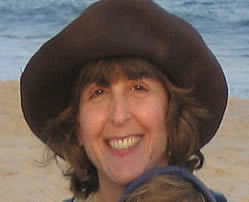 |
Lisa Williams Photo Credit: Richard Jacovitz
“Williams acknowledge[s] that life, often fragile and tenuous, is forever changed in ways that are beyond our control. And, in a series of moving, heart-felt and deeply personal letters to Virginia Woolf, she explores the notion of lost innocence, using Woolf’s ideas about war, memory, and childhood as a catalyst…[What] really shines through [in] Williams’s short book is her appreciation of life’s wonder in all its complexity and fragility.—Kim Bofo, ReadingMatters.com
“Letters to Virginia Woolf’ takes a fresh look at the enduring impact of Woolf’s legacy. This grippingly personal testimony of the value of female influence demonstrates the bonding power of women’s creative imagination. Lisa Williams successfully demonstrates how to communicate across boundaries of difference and in the process helps to make Woolf accessible across cultures.”—Tuzyline Jita Allan, English Department, Baruch College, City University of New York
“Lisa Williams’s Letters to Virginia Woolf is a spare and lovely book; probably three parts memoir to one part literary appreciation of the work of Virginia Woolf.” Taking the character of the shell shocked soldier, Septimus (from Mrs Dalloway), and Woolf’s own pacifist views the author initially reflects on the continuing pain and anxiety flowing from the events of 9/11. Memory and the shadow of the past are also strong themes and she deals, in pared down, sometimes poetic prose, with unhappy ghosts from her own history… As she does so, she reflects on how far she has managed to fulfill Virginia Woolf’s ambition to kill off what Woolf termed the ‘Angel in the House’. At first, I was unsure about the letter format, but was quickly converted: Lisa Williams’s use of Woolf’s work is sensitive and apt, illuminating both the original quote and its relevance to our situation in the twenty-first century.”—Sandra MacDonald, editor, Book World
“Because the book is so accessible, it will help readers who are ‘afraid of Virginia Woolf,’ and will appeal to many women on many levels. It will not exclude male readership. This is a great service to all readers of Virginia Woolf.”—Jane Lilienfeld, Professor of English, Lincoln University of Missouri

